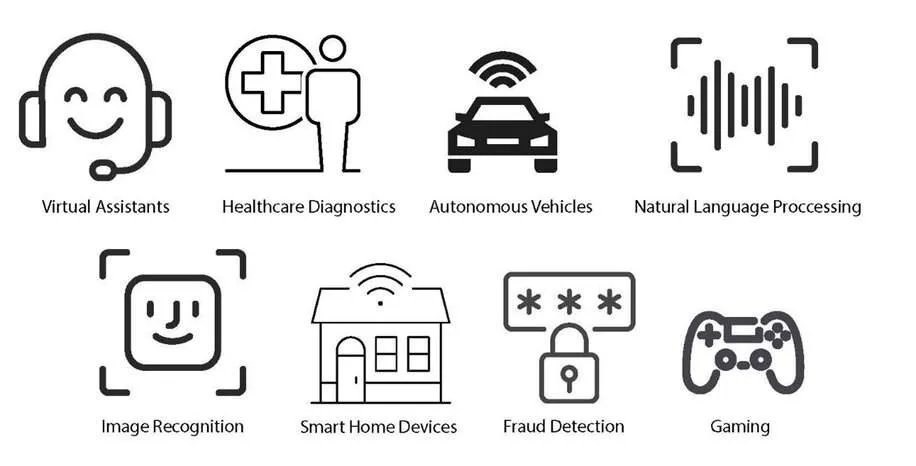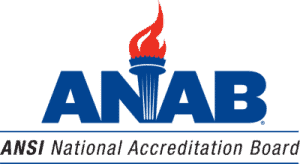ISO/IEC 42001 – Hype or a Guiding Light?

One of the most widely anticipated standards in decades, ISO/IEC 42001: Artificial Intelligence Management Systems (AIMS), was published in December 2023. As a global standard, ISO/IEC 42001 can be used by organizations of all sizes and in industries, no matter if the organization develops, produces, or uses AI in its products or services. The standard is adaptable, scalable, flexible, and bridges the gap between rapidly evolving technological advancement and ethical oversight; thus, promoting a culture of responsibility and trust in AI technologies.
What Is ISO/IEC 42001?
ISO/IEC 42001 is more than just hype; it can help reshape industries using AI worldwide. While the hype surrounding AI often outpaces its current capabilities, dismissing ISO/IEC 42001 as a short-term solution overlooks the profound long-term potential of AI. Especially when you accompany the use of AI with accredited certification to ISO/IEC 42001 to better address ethical implications, ongoing research, controls for use, and collaboration across disciplines. The standard provides the foundation and a true guiding light for organizations, industry, regulators, and other stakeholders.
ISO/IEC 42001 was developed to define requirements for establishing, implementing, maintaining, and continually improving an Artificial Intelligence Management System (AIMS) for all types of organizations. An AI management system (MS), as defined in ISO/IEC 42001, is a set of interrelated, interacting elements for an organization, intended to establish policies and objectives, as well as processes, to achieve those objectives, in response to the responsible development, provision, or use of AI systems.
ISO/IEC 42001 was intentionally written as a standard for management systems, intended for organizations aiming to implement an MS and pursue accredited certification to it. Accredited certification to ISO/IEC 42001 means an independent third-party MS certification body (CB) has verified that a company’s internal MS meets internationally recognized standards (e.g., ISO/IEC 42001). Leading the way in the AI space, ISO/IEC 42001 provides the framework and requirements for organizations to build a responsible, ethical, and trustworthy management system. When coupled with accredited certification, the organization should be able to assure their customers consistency and effectiveness.
What Is the Structure of ISO/IEC 42001?
The standard is structured around several components that are essential for the effective management of AI systems:

What Will Be the Impact of ISO/IEC 42001?
AI has been rapidly penetrating multiple industries, including healthcare, defense, transportation, finance, staffing services, energy, telecommunications, and marketing, which offers a multitude of benefits. By achieving accredited certification for ISO/IEC 42001, organizations showcase their early adopter status, may gain a competitive advantage in the global marketplace, have support for government issues and demonstrate their commitment to responsible and trustworthy AI practices and ethical, transparent, and accountable AI development and usage.
Some examples of AI products and services include:

ISO/IEC 42001 aligns with government initiatives like the U.S. Risk Management Framework and the EU AI ACT and reflects a growing global emphasis on responsible and trustworthy AI. The standard helps businesses balance innovation and governance while managing risks and opportunities.
As the use of AI continues to evolve, its impact will extend far beyond the realm of mere hype, becoming an indispensable tool for addressing complex challenges and driving innovation in the years to come.
Accredited certification to ISO/IEC 42001 is an answer and a roadmap for shaping a harmonized approach for responsible, ethical, and trustworthy AI governance.
What Is ANAB?
The ANSI National Accreditation Board (ANAB) is a non-governmental organization that provides accreditation services to public- and private-sector organizations. ANAB is a wholly owned subsidiary of the American National Standards Institute (ANSI). Accreditation provides formal recognition to competent organizations. It provides a conduit for regulators and industry to find reliable products and services to meet their specific needs. Accreditation is a means to reduce costs and redundancy and eliminate trade barriers. Most important, accreditation assures industry and government decision-makers that accredited organizations are competent and their results can be relied on.






